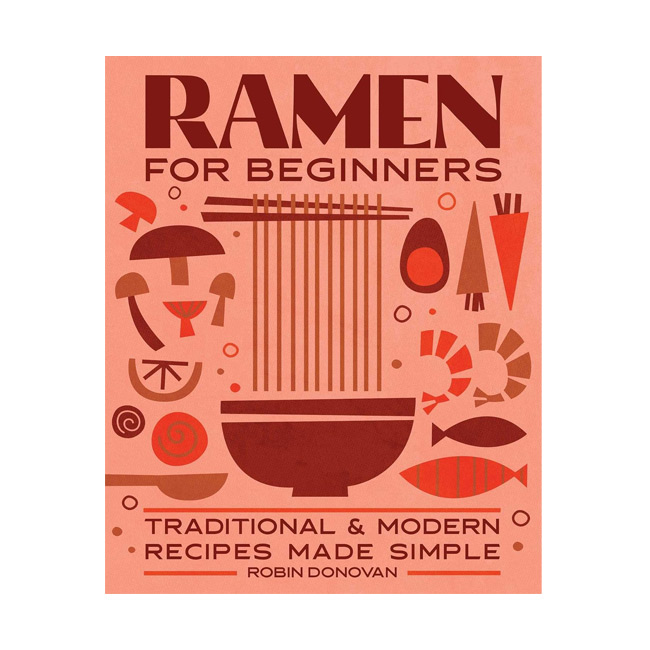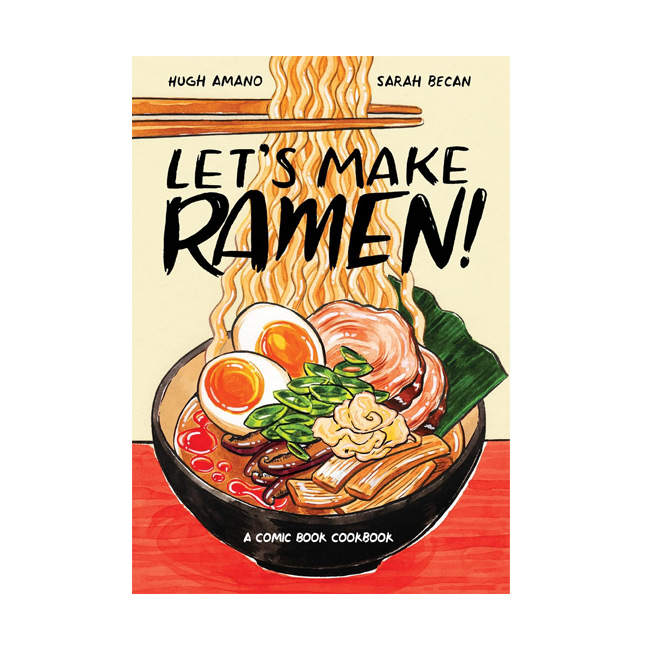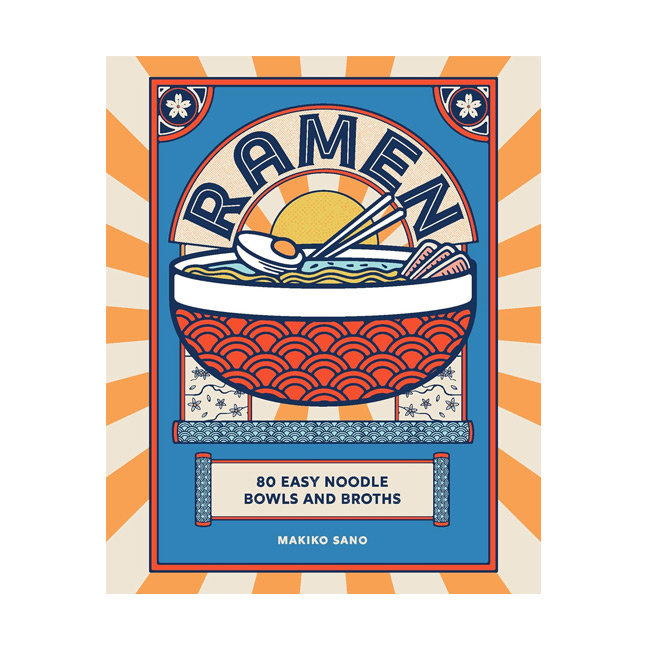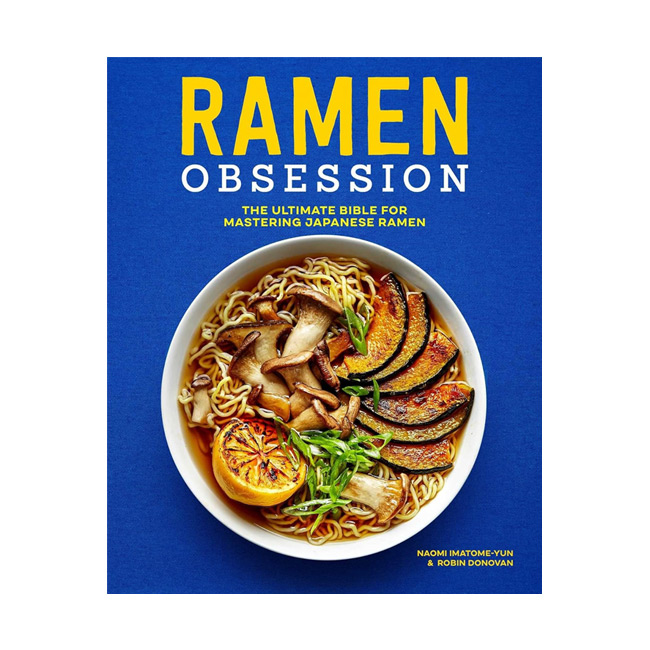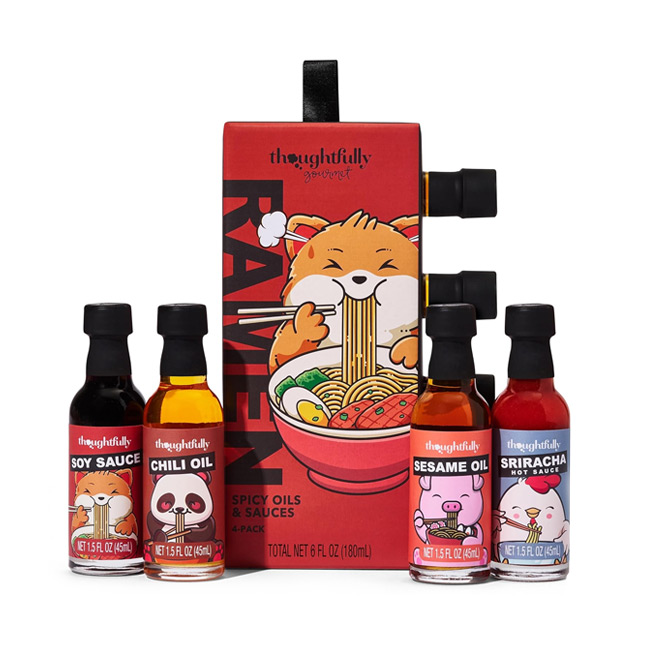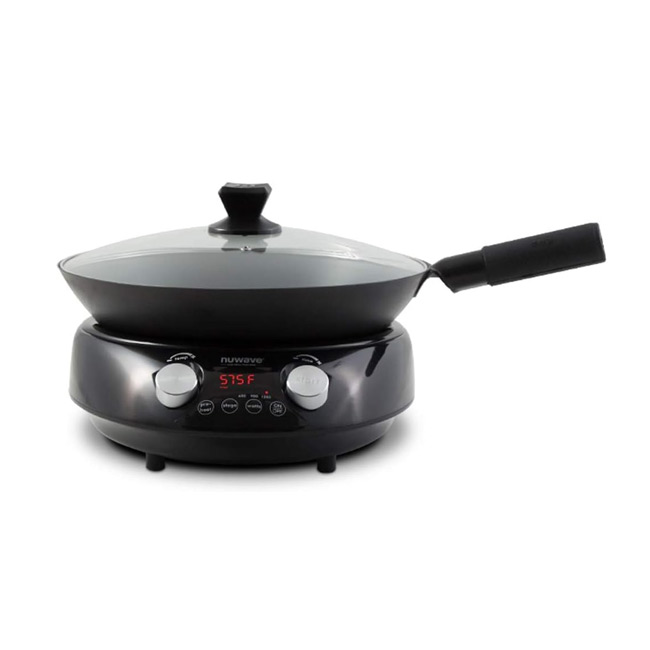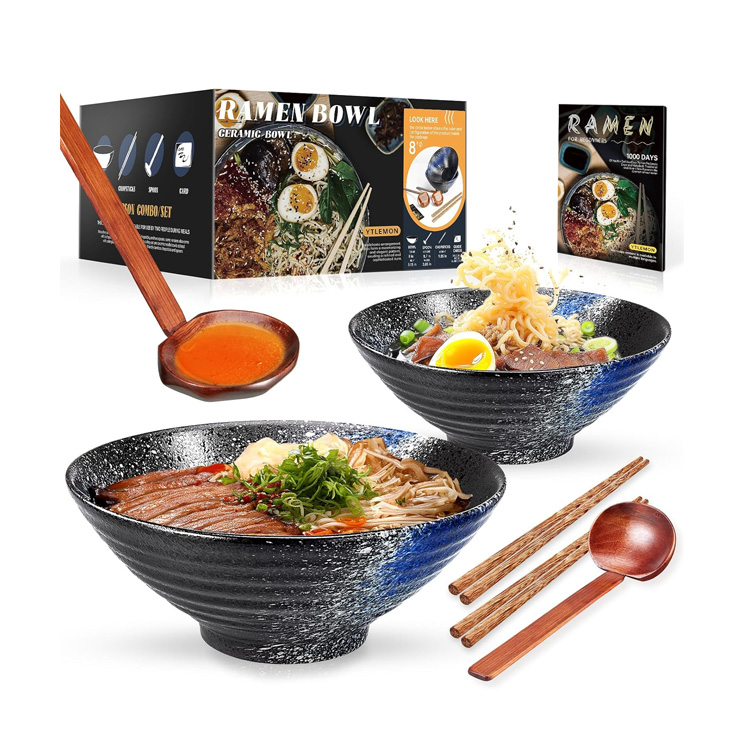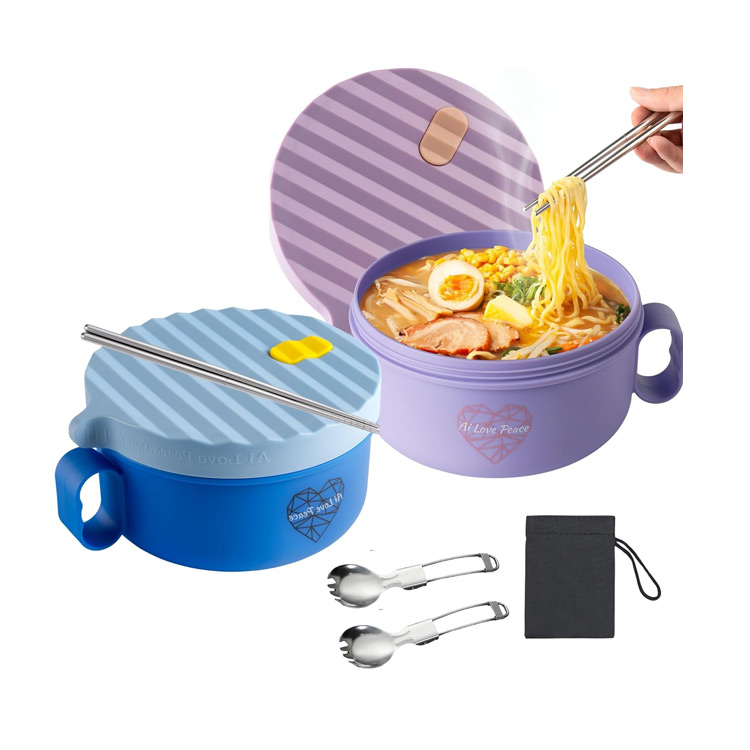ramen
database
Discover the world of ramen, one bowl at a time…
Remember the movie The Ramen Girl? The critics had mixed reviews, but the idea, I believe, is fantastic: You can’t cook ramen with your head. You have to cook with your soul, your heart.
Although tamen originated from Chinese noodles, most of us associate it with Japan – where it was introduced during the late 19th century and quickly evolved into its own dish. Its popularity then soared after World War II because wheat was inexpensive and more readily available.
Today, almost every region in Japan has put its own unique spin on ramen. For example, the rich, pork-based broth of tonkotsu ramen originated in Kyushu and the soy sauce-based shoyu ramen in Tokyo. But you can also get them both in New York, London, Paris, and many other cities! I am no chef, so here is, instead, my humble attempt at creating an easy-to-navigate Japanese ramen database.
Types of Ramen
Ramen comes in a lot of different forms. You have, for example, the savory richness of Tonkotsu (pork) and the refreshing lightness of Shio (salt). The most common varieties, though, are probably Shoyu (soy sauce broth), Hakata, and Miso. And there is so much more! Paitan (which is umami-packed), Chintan (clear broth), and Tsukemen (cold ramen), just to name a few. You can start exploring them here:
The Classics
I thought I’d start by showing you the most common ramen you would find if you went out for, say, dinner. These are shoyu, shio, miso, tonkotsu, and tantan or tantanmen ramen. You can also check their broths here.

Shoyu Ramen
Shoyu ramen uses a clear and salty soy sauce broth and is considered fairly balanced, with many comforting flavors.
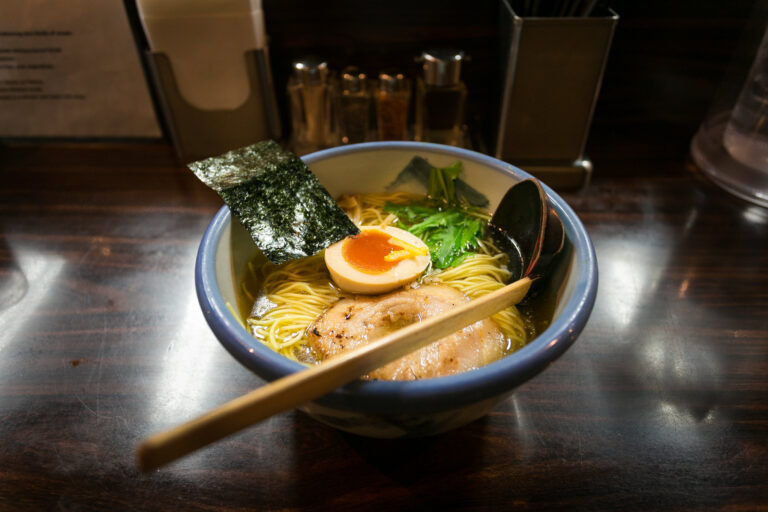
Shio Ramen
Shio Ramen is based on chicken broth. Its main seasoning is salt, and its toppings are usually a refreshing mix of seafood and veggies.
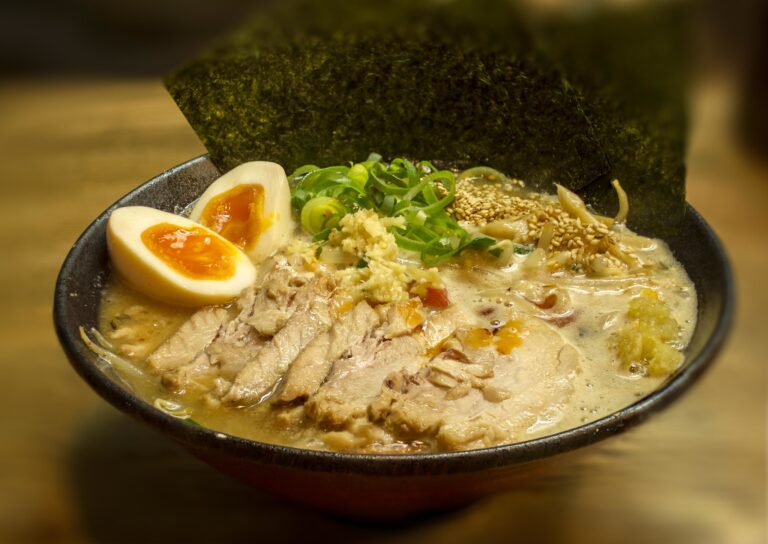
Miso Ramen
Miso Ramen originates from Hokkaido and features a robust miso-based broth, as well as ground pork, corn, and a blend of savory toppings.

Tonkotsu Ramen
Tonkotsu ramen is creamy and intensely savory. It’s based on a rich pork bone broth and uses toppings like chashu and mushrooms.
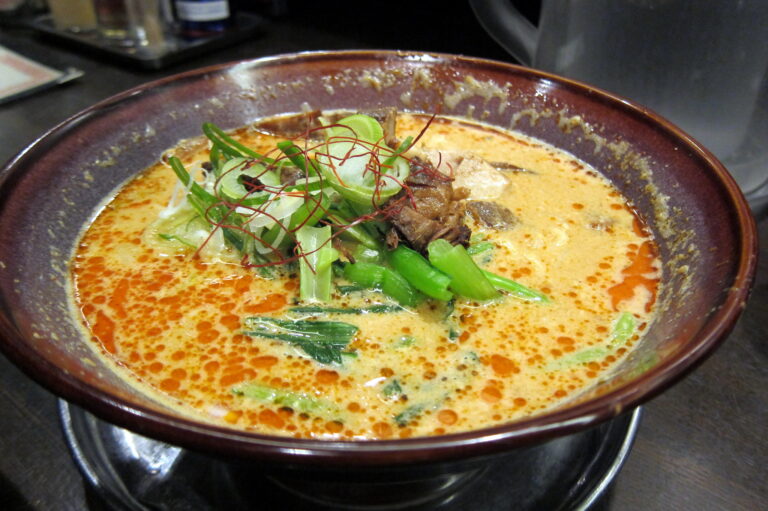
Tantanmen (Tan Tan) Ramen
Tantanmen or Tan-Tan ramen is a rich and spicy Japanese adaptation of Sichuan Dan Dan noodles. It uses a creamy broth and chewy noodles.
Did you know?…
The Invention of Instant Ramen
In 1958, Momofuku Ando, founder of Nissin, invented instant ramen (Chikin Ramen). The story goes that he was inspired after seeing long lines at ramen stalls and wanted to make the dish accessible at home. His first test kitchen was literally a shed in his backyard in Ikeda, Osaka. He famously said: “Peace will come to the world when the people have enough to eat.” Decades later, astronauts even ate instant ramen aboard the Space Shuttle Discovery in 2005 — the same man who started in a shed had sent noodles to space.
Other Popular Ramen
There’s a lot more to ramen than these flavors above. So, here’s a list with some other options. You can use the button below them to see the whole list.
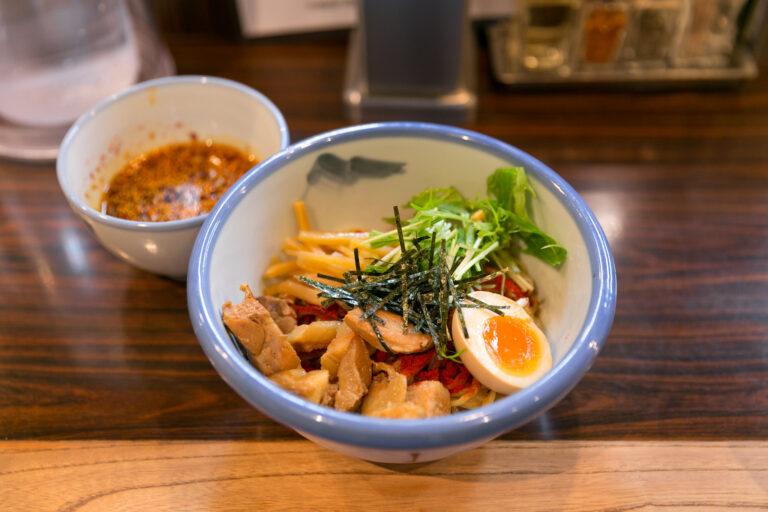
Tsukemen Ramen
Tsukemen ramen uses thick, cold noodles and is served alongside a rich, concentrated dipping broth and a flavorful toppings.
![Types of Ramen: Hakata Ramen. Image courtesy of [cipher] via Flickr Commons.](https://ramendatabase.com/wp-content/uploads/2024/06/Types-of-Ramen_Hakata-Ramen-768x510.jpg)
Hakata Ramen
Hakata Ramen originates from Fukuoka and features a rich and milky tonkotsu broth and toppings like chashu and pickled ginger.
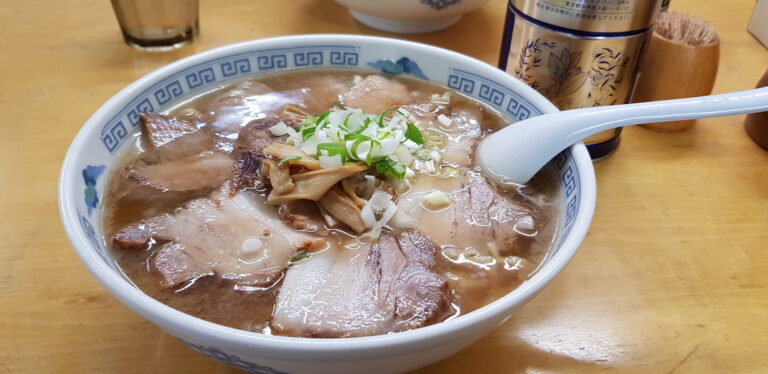
Kitakata Ramen
Kitakata ramen is a savory variety from Fukushima, Japan. It has a light broth and uses thick and wavy noodles.
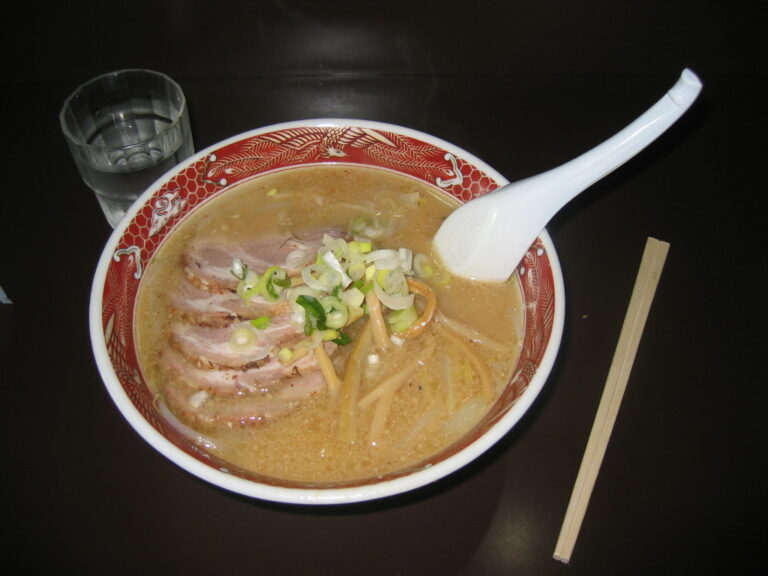
Sapporo Ramen
Sapporo ramen is hearty and flavorful and originates from Hokkaido, Japan. It uses a rich red miso-based broth and chukamen noodles.
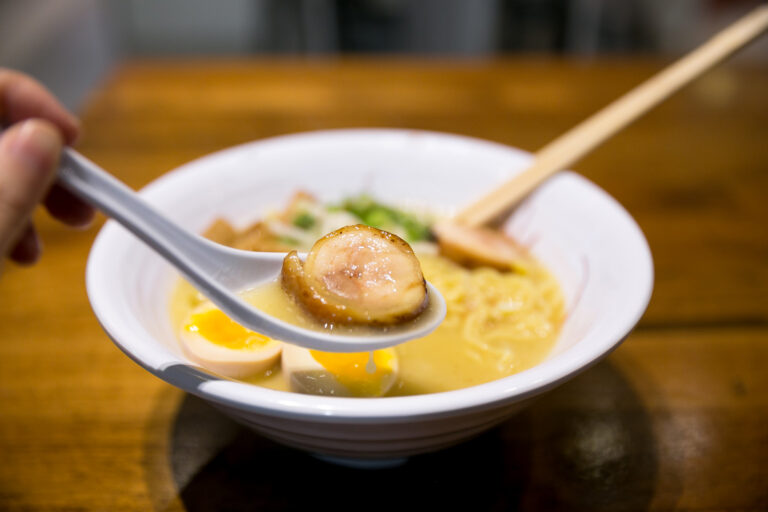
Paitan Ramen
Paitan ramen has a creamy and cloudy broth, perfect for those who love a hearty, umami-packed ramen experience.
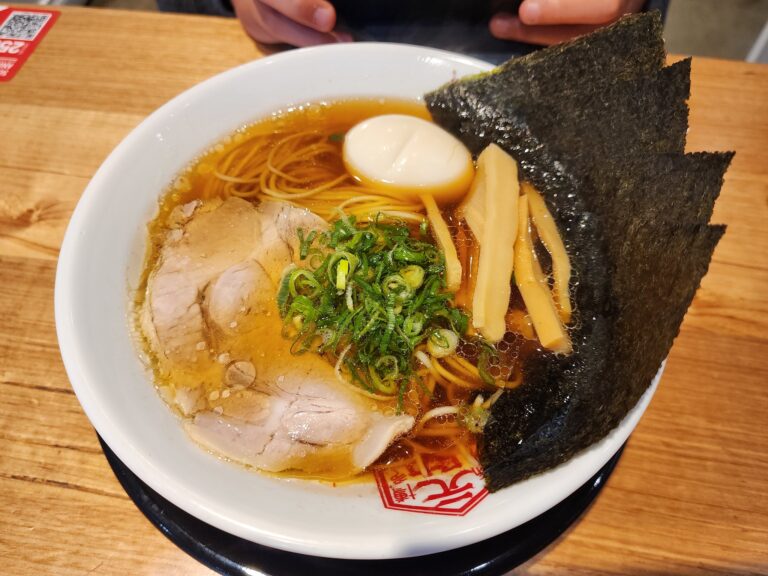
Chintan Ramen
Chintan ramen is known for its clear, flavorful broth. Learn about its refined broth, perfect noodles, and thoughtfully chosen toppings.
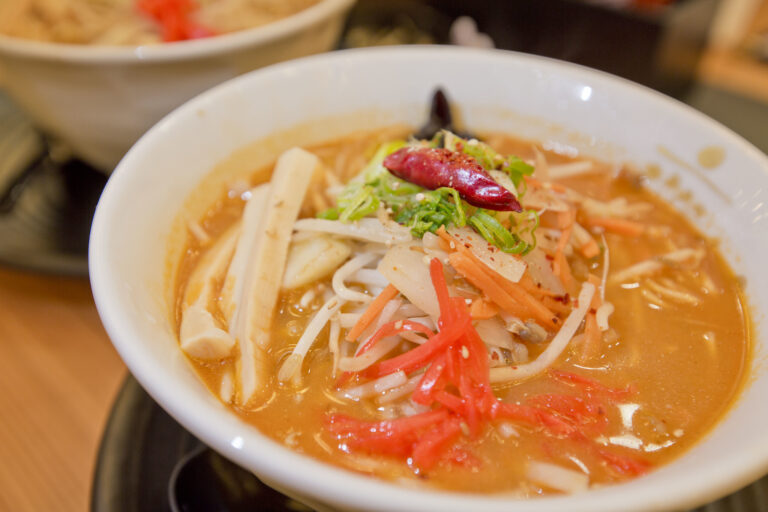
Vegan Ramen
Vegan ramen (or plant-based ramen) is often made with fresh and dried mushrooms, garlic, ginger, mirin, and miso paste.
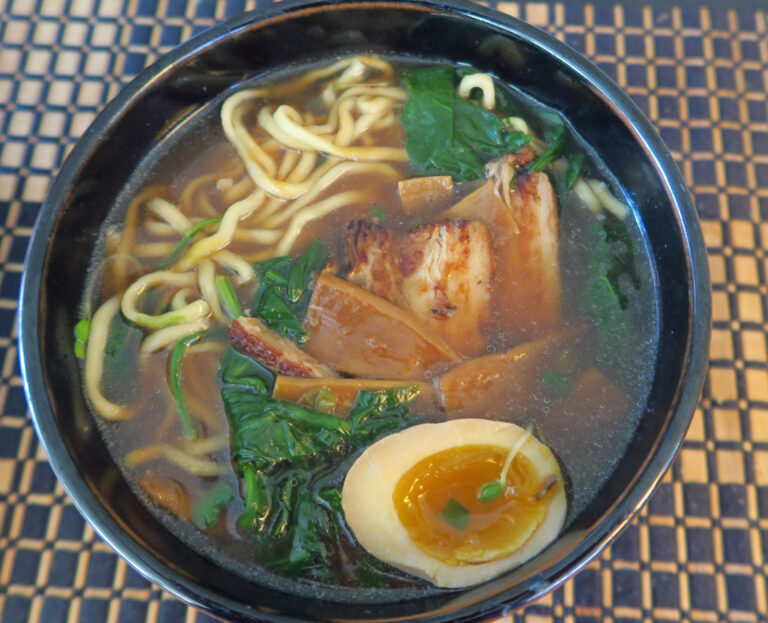
Tokyo Ramen
Tokyo ramen is a beloved Japanese soup known for its clear shoyu broth, firm curly noodles, and a soy-flavored chicken broth.
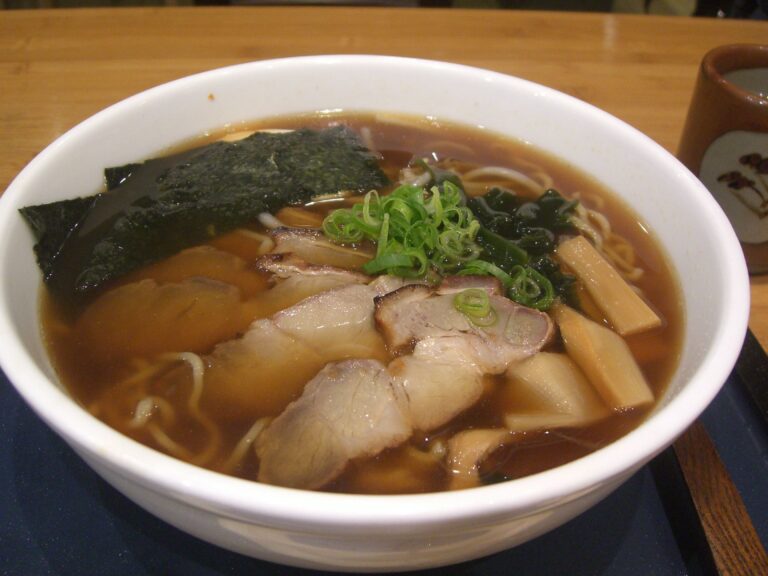
Chashu Ramen
Chashu ramen is a Japanese noodle soup known for its rich broth, tender braised pork belly, and flavorful toppings.

Wakayama Ramen
Wakayama ramen is a regional specialty combining shoyu and tonkotsu broths. It uses chuka soba or Chinese noodles.
Ramen Ingredients
Ramen has a rich and diverse array of ingredients that come together to create that wonderful flavorful experience. You can explore these core components below or use the links to see the specific sections:
Ramen Broth – Ramen Noodles – Ramen Toppings – Ramen Seasoning
Ramen Noodles
Ramen noodles come in many varieties, mainly depending on the chewiness and thickness. For example, Futomen are thick, Hosomen are thin, and Chukamen are neither thin nor thick. They can also be flat, wavy, or made of whole wheat flour or buckwheat flour. You can find all options below (there’s a link right after the images that wil take you to the complete list of ramen noodle varieties).
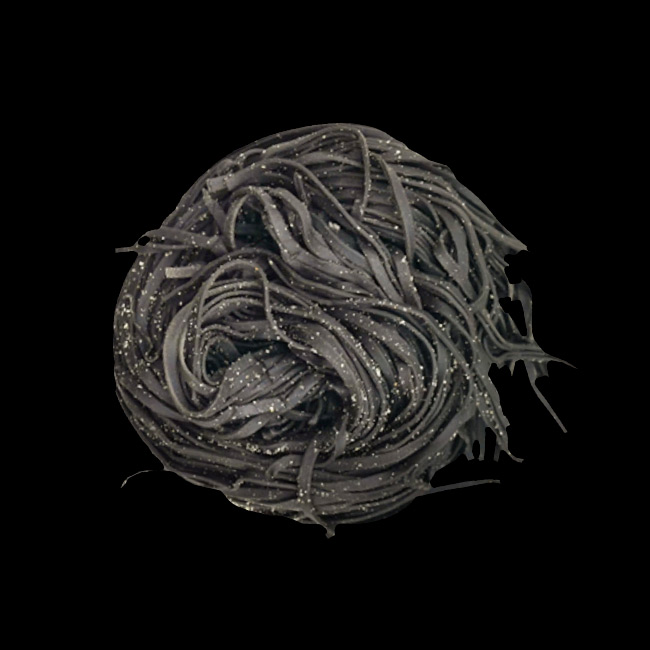
Ink Squid or Charcoal Noodles
For visual flair and a slightly smoky or briny flavor, some specialty ramen shops offer noodles made with activated charcoal or squid ink.
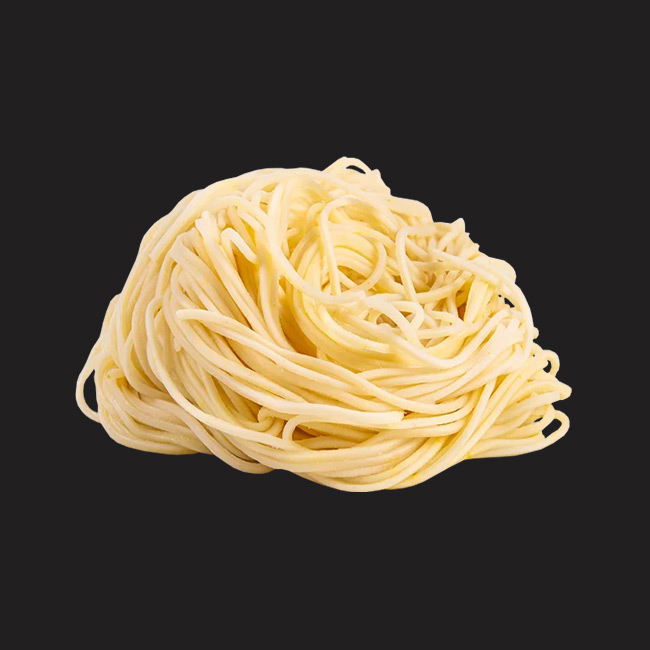
Regular Noodles (Chukamen)
Chukamen are the standard ramen noodles, neither thin nor thick. They are springy and slightly chewy, and made with kansui.

Buckwheat Noodles
Buckwheat noodles, known as soba in Japanese cuisine, are made primarily from buckwheat flour. They are high in protein and fiber.

Thick Noodles (Futomen)
Chewy and robust, thick noodles are perfect for rich broths like tonkotsu. Their substantial texture holds up well in hearty soups.

Whole Wheat Noodles
Made with whole wheat flour, whole wheat noodles offer a slightly nutty flavor and a healthier option. They bring a distinct taste and texture.
Ramen Broths
The broth is the soul of ramen, providing the foundational flavor that defines each bowl. There are several types of ramen broths, each with its unique taste profile. The main difference between them tends is the primary ingredient, which can be something like soy sauce, salt, pork fat, and others.
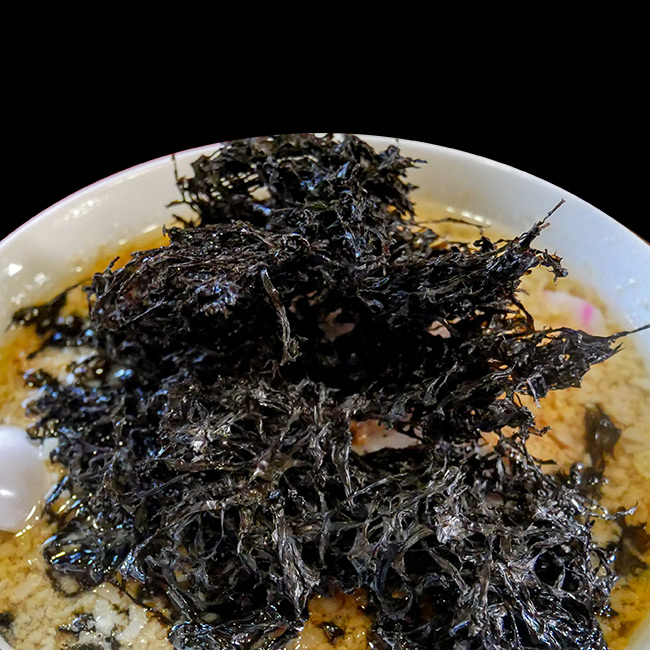
Kombu Kelp Broth
Discover the umami-rich world of kombu (kelp) in ramen, learn about its history, usage tips, and how to select the best kombu for your broth.
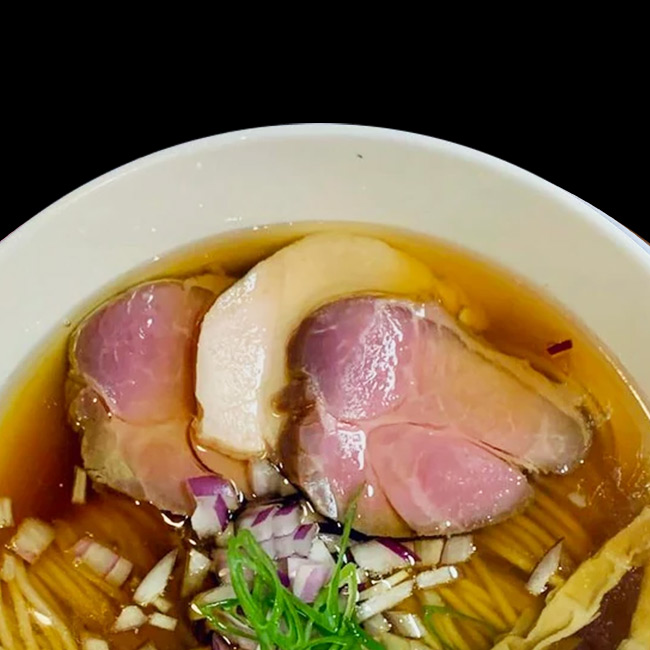
Shoyu Broth (Soy Sauce)
Explore soy sauce in ramen, from its rich, umami flavors and historical roots to tips on selecting the best soy sauce for a perfect bowl.
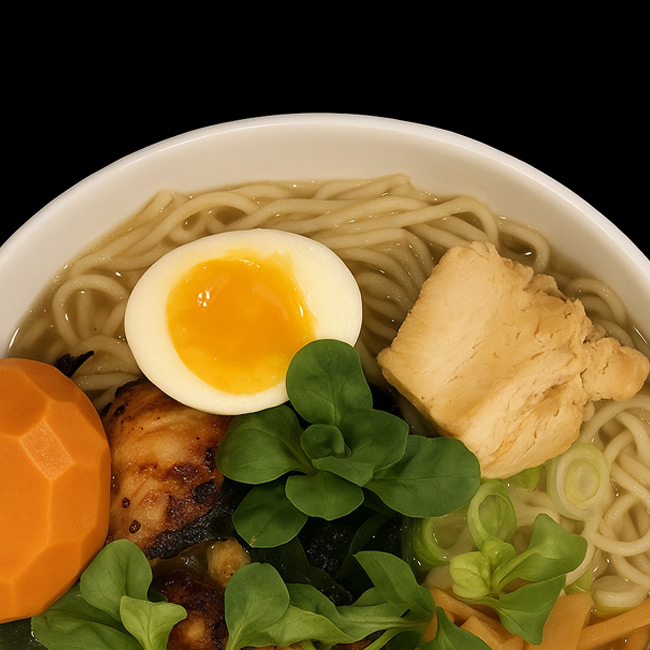
Dashi-Based Broth
Dashi broth is a foundational component in Japanese cuisine, and when used in ramen, it offers a light, clear, and deeply umami-rich base.
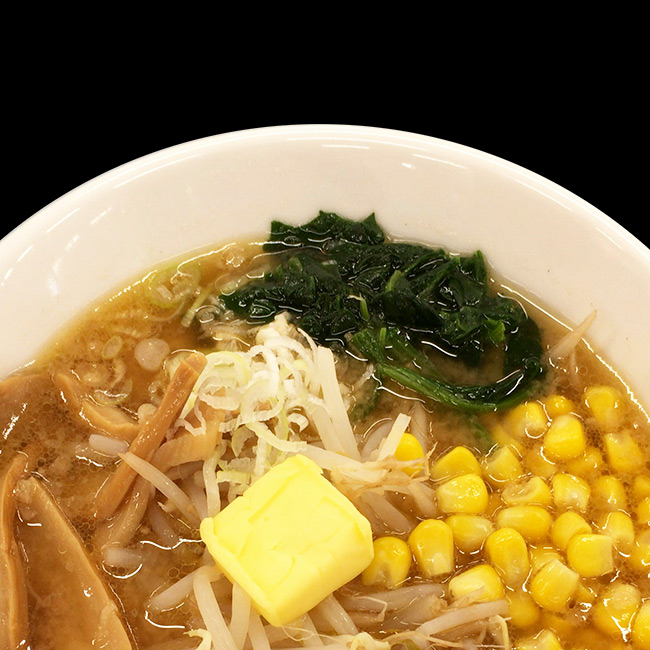
Miso Broth
Miso ramen broth is made with fermented soybean paste, resulting in a rich, hearty, and slightly tangy flavor.
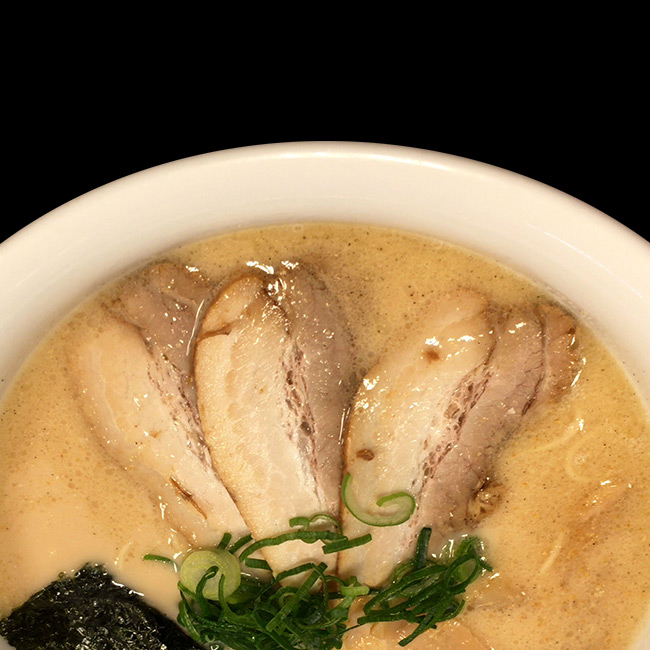
Tonkotsu (Pork) Broth
Discover the rich history and flavorful depth of umami-packed pork bone broth, a popular ingredient in Tonkotsu ramen.

